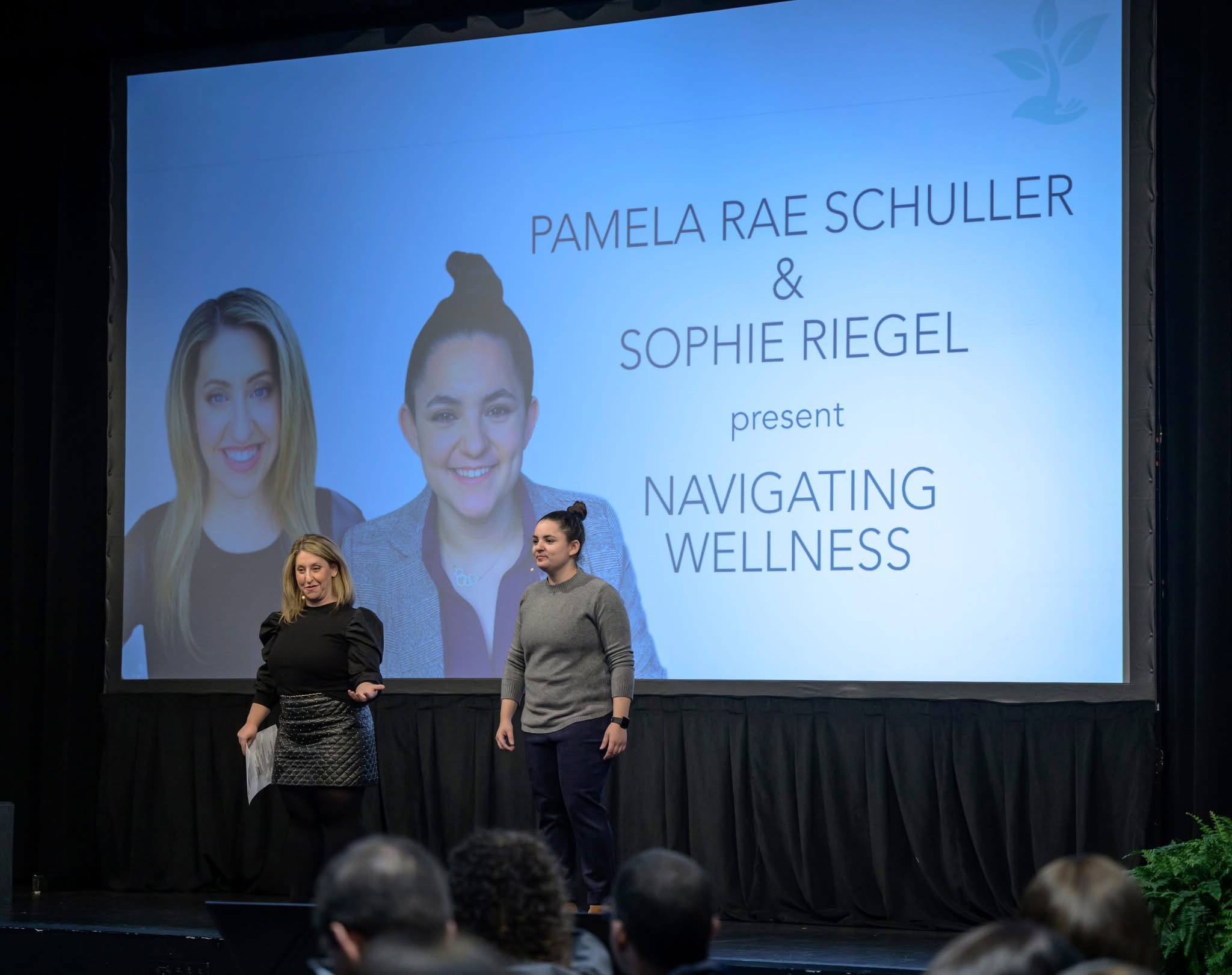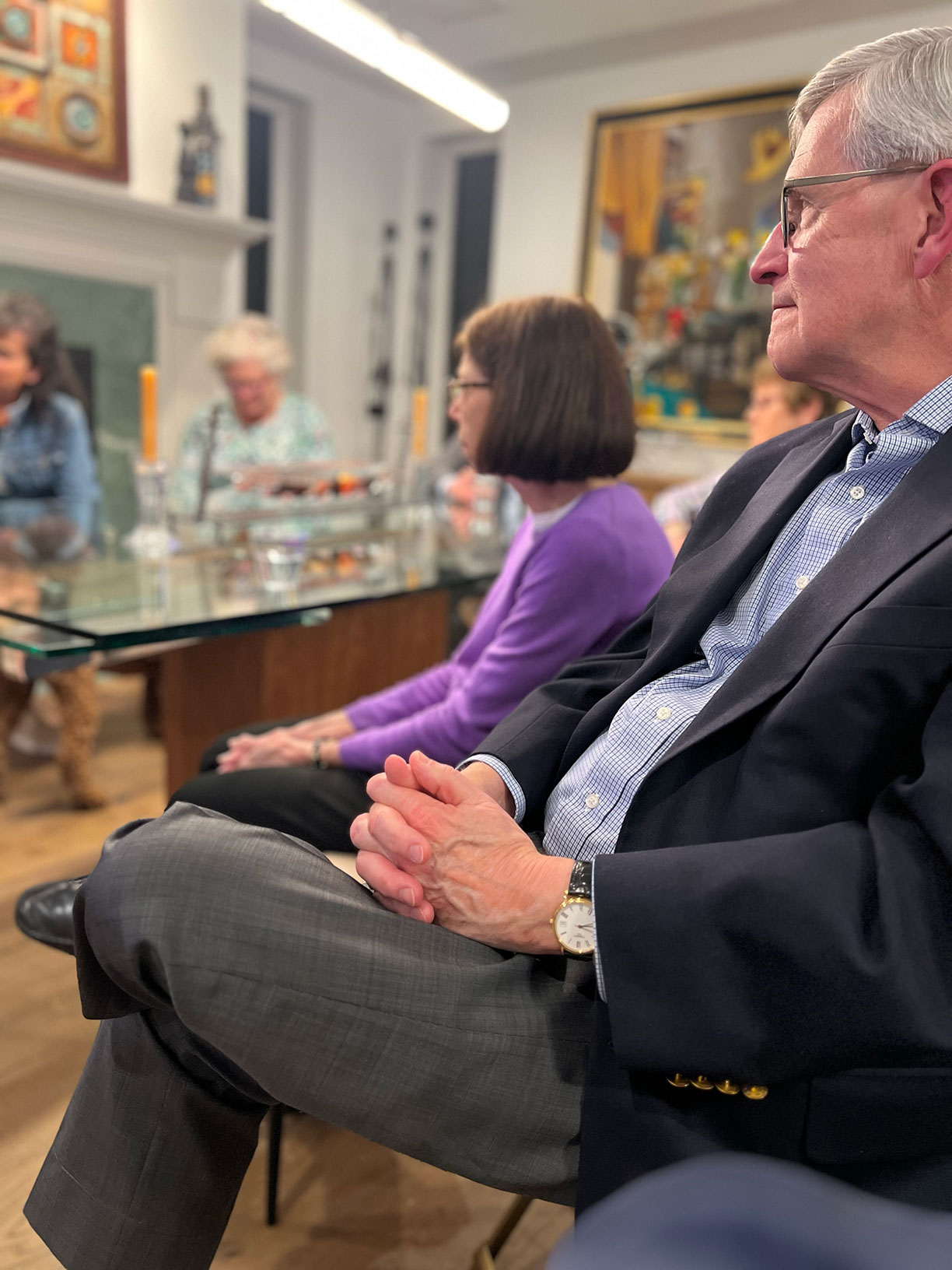Submitted by Jewish Family Service
Over the past three decades, Leah Marcus, Director of Youth Mental Health Services at Jewish Family Service (JFS), has lost ten high school classmates to suicide or overdose. These tragic deaths underscore a disturbing reality that is increasing dramatically in the United States: death by suicide. According to the Center for Disease Control and Prevention (CDC), in 2021, 49,500 people took their own lives — the highest number the CDC has recorded. So, as we contemplate our actions and inactions of the past year, we at JFS are determined to help as many as possible remain in “The Book of Life” for years to come.
September is National Suicide Prevention Month — a time for honoring the memories of those lost to suicide, and for extending support to individuals, families, and communities that have been impacted. For Marcus, the reverberating sounds of the shofar serve as a poignant reminder of those she has lost to suicide. It is a clarion call to action that reminds her of the vital work she has dedicated herself to. “Rosh Hashanah and the Days of Awe remind me of everyone I have lost, and everyone I want to help,” Marcus said.
Marcus helms JFS’s Youth Mental Health Services, which serves as a beacon of hope in our community. In 2021, in an effort to better align services with community needs, JFS initiated and rapidly expanded these critical services to meet the growing demand within our community. Marcus emphasizes that the interventions available today — including medication, prevention programs, and social-emotional learning — came too late for her peers. These untimely deaths, categorized by the CDC as “Deaths of Despair,” have deeply affected Marcus, and have helped fuel her unwavering commitment to the well-being of our youth. In her role as the Director of Youth Mental Health Services, Marcus is proud to know she is spearheading a crucial, live-saving initiative.
Today, JFS boasts a dedicated team of six therapists who provide comprehensive support for our teens and young adults. These professionals specialize in education, prevention, and counseling. “The cost of mental health services is a common concern for families. JFS has eliminated this barrier by providing counseling with or without insurance, ensuring no financial burden,” Marcus explained. Further, JFS has proactively integrated its therapists within various organizations in the region, including Jewish day schools, campus Hillels, the JCC’s Camp at the J, and other Jewish youth programming. This approach ensures that mental health services are readily and more widely available — effectively reducing barriers to care, and associated stigma. Additionally, JFS is committed to delivering prevention-focused programs, such as Youth Mental Health First Aid, to educators and leaders within the Jewish community, nurturing a culture of resilience and adaptability.
Our community’s commitment extends beyond the initiatives mentioned above. In 2022, the Jewish Foundation of Cincinnati, in partnership with the Jewish Federation of Cincinnati, launched a local Resiliency Roundtable. Modeled on the BeWell platform of the Jewish Federations of North America (JFNA), the roundtable is comprised of community lay leaders, clinical practitioners, and agency leaders who convene regularly to address critical mental health issues. This roundtable, of which JFS is a member, aspires to establish a stigma-free, comprehensive, and integrated Jewish communal support system. This system will meet the needs of Jewish Cincinnati families seeking improved and accessible mental health care — irrespective of age, socio-economic status, or the level of assistance required.
As part of this comprehensive effort, the Jewish Foundation, in partnership with the Federation and JFS, recently conducted two Mental Health Community Surveys — one aimed at teens and young adults, and the other directed toward their parents. These surveys revealed a significant disparity: parents were two to three times less likely to identify mental health challenges experienced by young people than the young people themselves. This indicates that many parents are not fully aware of the mental health difficulties their children and peers are facing.
As we heed the call of the shofar this Rosh Hashanah, let us also lend an ear to its poignant plea. It is a call for each one of us to secure a more hopeful future for our young people — ensuring their mental well-being by creating a resilient and restorative community that wholeheartedly cherishes every single life.





